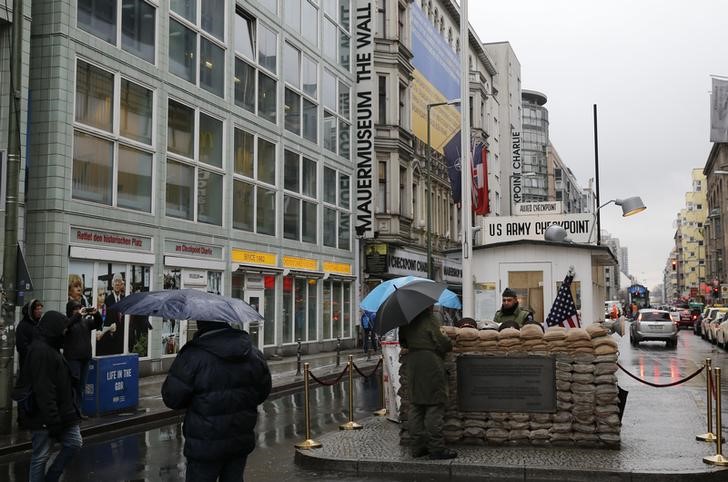BERLIN, (Reuters) - Growth in Germany's private sector hit a five-month low in February but remained solid, underpinned by a growing services sector, a survey showed on Thursday.
Markit's final composite Purchasing Managers' Index (PMI), which tracks activity in the manufacturing and services sectors that together account for more than two-thirds of the German economy, inched down 54.1 from 54.5 in the previous month.
That was the weakest reading since September but still well above the 50 mark that separates expansion from contraction, suggesting Europe's largest economy remains robust in the face of a global slowdown.
Service sector output increased at a slightly higher rate than in January as new business came in at a quicker pace, and incoming new orders remained at an historically high level.
Business expectations in the services sector fell to a three-month low after hitting their highest level in almost five years in January.
"Today's PMI results for Germany's service sector offer some relief and suggest that the euro zone's largest economy is not performing as poorly as signalled by the manufacturing numbers earlier this week," said Markit economist Oliver Kolodseike.
German manufacturing almost stagnated in February and activity in the sector fell to a 15-month low.
"Although output rose by the smallest extent in three months, the underlying rate of growth was robust overall, helped by a further sharp rise in new business," Kolodseike added.
Around 28 percent of service companies said they were optimistic about growth in the next 12 months.
Some companies linked activity growth to the large influx of refugees into Germany over the last year. The government has said spending on their care is helping to support growth and compensate for a drop in exports, which have traditionally driven the economy.
Kolodseike said the composite PMI figures so far suggest the German economy will grow at a similar pace this year to 2015, when gross domestic product rose 1.7 percent.
(
